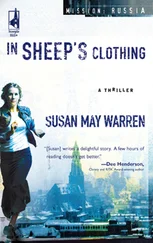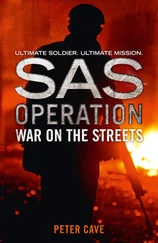“What the hell do you mean, you can’t do that?”
“I can’t alert them without having ironclad proof that this memo from Admiral Drummond is genuine, that the information in it is accurate. Otherwise no one would believe it.”
“Are you saying you think Drummond may have made it up?” Alex said.
“Of course not. But Drummond is dead, officially a suicide, and so is Radchenko, who, according to this memo, had information about an operation by Zakayev against Olenya Bay.”
“But you know as well as I do,” Scott said, “that Drummond was murdered to prevent him from warning us about this very plan—Zakayev’s plan.”
“We have no proof of that. All we have is circumstantial evidence and suspicions.”
“We have Drummond's memo, which proves it wasn't a homosexual rendezvous, that he didn’t commit suicide and kill Radchenko. The hotel porter didn’t smash in the door to Drummond’s room: Zakayev did and then killed them. You have the matching shell cases that prove he was involved in the St. Petersburg shoot-out and the one in Murmansk that killed Serov. Their feud may even be related to the operation at Olenya Bay. What more do you need?”
“A lot more,” Abakov said, his voice rising. “For instance, how and where did Radchenko get his information? Maybe he made up a story to get money out of Drummond.”
“Frank wouldn’t fall for that,” Alex said.
“How can you be sure? Drummond was looking for Zakayev, and he would be eager for any information that would lead him to him. As for this Litvanov, we have nothing to tie him to Zakayev except the fact Radchenko was a member of his sub crew.”
Alex said, “Colonel, your points are valid. So…would it be possible to get information about Litvanov? Maybe there’s something in his record that might tie him to Zakayev.”
“Yes, perhaps. But it will take time.” His eyes darted over the memo while he gnawed a knuckle.
“Then you’d better think about this,” said Scott. “In a few days the President of the United States and the President of Russia will hold a summit meeting in St. Petersburg.”
Abakov looked intently at Scott while he listened. Sweat shone on his bald dome.
“I’m no expert on Russian subs,” Scott continued, “but I know that some can launch SS-N-21 cruise missiles equipped with nuclear warheads. They have a range of over sixteen hundred nautical miles. St. Petersburg can be targeted by a submarine armed with these missiles from anywhere within an arc stretching from the Norwegian Sea to the Barents Sea.”
There was a long silence. The sounds of kids playing, punting a soccer ball, scrambling over the empty trash-strewn lot, penetrated Abakov’s apartment.
Abakov got slowly to his feet. “I think we’d better pay a visit to Olenya Bay.”
Captain First Rank Gennadi Titov, commandant of the Russian Northern Fleet Submarine Base, Olenya Bay, rushed into his office to find Scott, Alex, and Yuri Abakov waiting for him. Titov’s face looked puffy and mapped with capillaries. He appeared flustered by his tardiness and struggled to button his tunic. His chief of staff made introductions.
Titov rocked slightly on his feet as his eyes focused on Alex. “Ah, Dr. Thorne, such a pleasure to have you on board again. I always enjoy your visits—”
“This isn’t a social call, Commandant,” interrupted Abakov. “We’re facing a possible security threat.”
“So my chief of staff has informed me, Colonel,” said Titov, an edge in his voice, his gaze on Abakov’s forest green FSB uniform with gold flashes and decorations. “But he said you were rather cryptic on the phone. So I ask you now: What does this security threat have to do with Olenya Bay?”
Abakov appeared a different man in uniform. His movements were crisp and economical, and his voice conveyed authority. “As you know, Commandant,” said Abakov, “a sailor from this base, Able Seaman Andre Radchenko, assigned to the submarine K.-363, was found murdered in Murmansk.”
“Yes, he was found with”—he swung his gaze to Alex—“Rear Admiral Drummond. My condolences, Dr. Thorne. You were saying, Colonel?”
“We think Radchenko may have been murdered because he knew something about a terrorist plot to steal a submarine from Olenya Bay.”
Titov’s eyes narrowed as he processed this information. He threw back his head and gave a sharp bark of a laugh. “Who’s bad joke is this? Yours, Colonel?” Another bark. “Or some idiot in the FSB with nothing better to do than dream up fantasies?”
“This is no fantasy,” Abakov said calmly. “We have information that leads us to suspect that Alikhan Zakayev may be planning to steal a submarine from this base.”
“Nonsense,” Titov said, wiping an eye. “You don’t know what you’re talking about if you think a terrorist can steal a submarine.” He inclined toward his chief of staff, who was as silent as a stone. “Am I right, Lieutenant?”
The aide, hanging back deferentially, tugged the hem of his wrinkled tunic and nodded.
Titov, suddenly serious, rounded on Alex. “Is this your doing?” he said through clenched teeth. “Haven’t you and your Norwegian friends meddled enough in naval affairs? Perhaps you want to cause more harm by spreading rumors that we harbor terrorists in Olenya Bay. Is that what your Admiral Drummond did, spread false rumors?”
“Of course not,” Alex said. “You know that Earth Safe, Admiral Drummond, and I tried our best to prevent fissile materials from falling into the hands of terrorists. We never meddled. But we can’t prevent a terrorist attack on this base. It’s your responsibility to provide security, not ours.”
“You’re out of line, Commandant,” Scott said. “Don’t blame Dr. Thorne for your failings. There’s no security on this pigsty of a base that I can see. When we drove on, there was no guard detail at the gate to check IDs. Your active submarines lack topside security watches, and the rest have been abandoned like so much junk. Hell, half your sub fleet’s rotting at the pier. The other half’s not even seaworthy. Terrorists could walk right on this base and go aboard any submarine they chose.”
Titov’s face turned crimson. “Who do you think you are, Captain Scott, to tell me that the Russian Navy’s submarine fleet is rotting? Our active submarines are the best in the world, better than your Los Angeles-class and your Seawolfs, and are in prime condition. As for terrorists stealing one of them, I tell you it’s impossible.”
“Not if they have help,” Abakov said.
“From whom?” Titov said sharply.
“Kapitan Georgi Litvanov,” Scott said.
“You’re mad. Litvanov is one of the top submarine commanders in the Northern Fleet. He would never deal with terrorists.”
“Did you know that he was a Chechen?” Scott asked.
Titov considered. He put a hand on his desk for support. “A Chechen… yes, of course I knew that. His family name was Litvanayev, but was changed to Litvanov by his father.”
“Why would a Chechen be given command of a Russian nuclear submarine?” Abakov said.
“Why? Because he is loyal to Russia, just as he was loyal to the old Soviet Union. And loyal to the Navy. Kapitan Litvanov was awarded the Red Star and the Red Banner. It’s well known that there was a Soviet policy of assigning certain Chechen officers to important positions in the Navy. As a young officer he was probably brought along by his seniors and eventually given command.”
“Did you know that his wife and children were killed by Russian Spetsnaz in Chechnya? That he comes from the same village as the terrorist Alikhan Zakayev?” Alex said.
“What of it? And how do I know what you say is true?” Titov said, as if the import of what he had heard was finally sinking in.
Читать дальше












